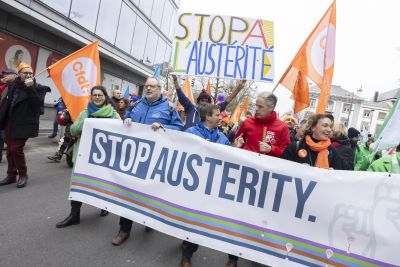EU leaders have kicked the can down the road on the major economic challenges facing Europe after a lack of consensus at the European summit which saw no decision taken on the long-term budget or even a discussion of the fiscal rules.
New fiscal rules, which set the spending and borrowing decisions of member states, were meant to enter into force on January 1 when the activation of the general escape clause of the Stability and Growth Pact comes to an end.
But there is no mention of economic governance in the conclusions of the European Council which ended today. This follows two consecutive meetings by EU finance ministers in which these rules were at the top of the agenda but on which no agreement was possible.
The lack of consensus shows why finance ministers need to support a further extension of at least 6-month to the suspension of the pre-pandemic limits and avoid trying to rush through bad rules under the cover of the Christmas break.
Finance ministers should listen to the clear message sent by the 15,000 people who took to the streets of Brussels to protest against plans to reintroduce austerity rules. The Commission’s proposals would force 14 countries to cut at least 45 billion from their budgets next year alone.
ETUC General Secretary Esther Lynch said:
“The European Council has kicked the can down the road when it comes to major decisions on the economy which will affect the lives of working people.
“The decision on the long-term budget was delayed while new fiscal rules – which were meant to come into force in two weeks’ time - were the elephant in the room.
“Faced with this impasse, the only sensible and responsible thing to do now is to extend the suspension of the EU’s punishing austerity rules.
“EU finance ministers should not try to use Christmas to bury bad news and rush through a decision on fiscal rules in the coming days. Neither should we simply revert back the previous rules, which everyone agrees are not fit for purpose. We need to ensure there is sufficient time for the proper consideration of the consequences of and alternatives to a return to austerity.
“A radical overhaul is needed in order to ensure the EU’s economic rules put the wellbeing of people and the planet above totally arbitrary limits based on discredited economic theory of the 1980s.”

